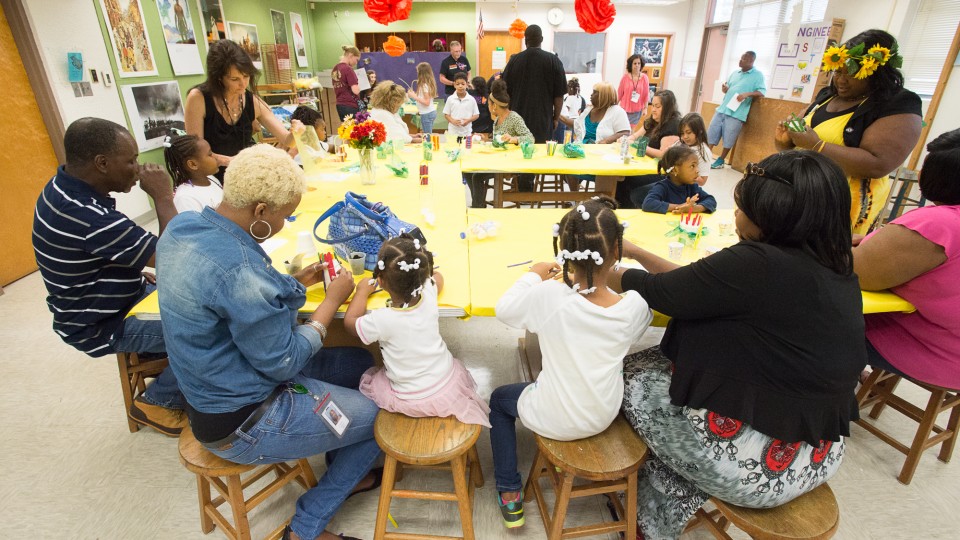Students perform better when families are involved
- March 24, 2016
- / Reggie Dogan
- / education

Parents and students take part in family literacy night at Lincoln Park Primary School in Pensacola, Fl. Thursday, April 23, 2015. (Michael Spooneybarger/ Pensacola Today)
Parent involvement in education is crucial.
Regardless of family income or background, students whose parents are involved in their schooling are more likely to have higher grades and test scores, attend school regularly, have better social skills, show improved behavior and adapt well to school.
The conflict comes in defining what involvement is, or in determining if all involved feel the particular activities are worthwhile.
The City of San Antonio has started a pre-K program it believes will enhance parental engagement and, subsequently, increase student achievement.
In a March Atlantic magazine article ,“When the Whole School Goes Pre-K,” Juleyka Lantigue-Williams shows how a community is working to bring everyone to the classroom.
Pre-K for San Antonio was designed to support and engage parents and extended families in ways that bolster their pre-schoolers’ chances to excel, Lantigue-Williams writes.
Pre-K 4 SA has built and billed itself as a child-centered but family-focused early-childhood development and education effort, with an outsized emphasis on parents, the extended family and other caretakers. Now in its third year, Pre-K 4 SA is a pilot program started by former mayor and current United States Secretary of Housing and Urban Development Julian Castro to provide full-time pre-k instruction for thousands of children in underserved neighborhoods.
Considered a bold move by supporters and an overreach by detractors, the program was built on the recognition that less-advantaged families in the city would benefit from having their children attend full-day pre-K while also having access to services that could help them create a path out of poverty.
As part of the Studer Community Institute’s mission to improve quality of life, kindergarten readiness emerged as one of 16 key metrics to gauge progress and identify areas that need improvement.
In Escambia County, 66.2 percent of 5-year-olds scored ready for kindergarten when evaluated in the first month of school in 2013-14, while Santa Rosa readiness rate was 81 percent.
Many research studies support what teachers instinctively know: Students perform better academically and socially when schools build positive relationships with families.
As The Atlantic suggests, “A meaningful pre-kindergarten experience is increasingly seen as a critical part of a child’s education, and parents are expected to play a much more significant role.”
 CivicCon launches with a look at good growth in cities
CivicCon launches with a look at good growth in cities
 Building stronger brains one baby, one parent at a time
Building stronger brains one baby, one parent at a time
 SCI debuts commercial on Early Learning City
SCI debuts commercial on Early Learning City
 Entrecon: World class speakers and an opportunity to sharpen skills
Entrecon: World class speakers and an opportunity to sharpen skills
 PYP Quality of Life survey 2017
PYP Quality of Life survey 2017
 EntreCon Pensacola 2016: A look back
EntreCon Pensacola 2016: A look back
 Leadership tip: getting better employee takeaways
Leadership tip: getting better employee takeaways
 Leadership tip: be interested instead of interesting
Leadership tip: be interested instead of interesting
 Leadership tip: delivering difficult messages
Leadership tip: delivering difficult messages
 Brain Bags boost Arc, Early Childhood Court programs
Brain Bags boost Arc, Early Childhood Court programs